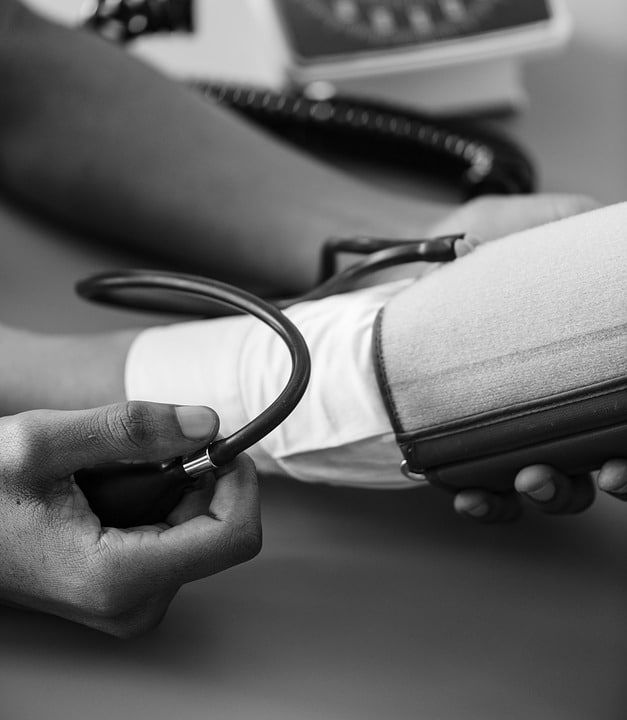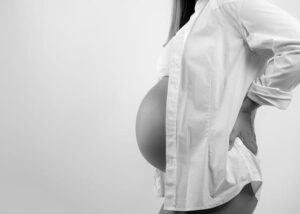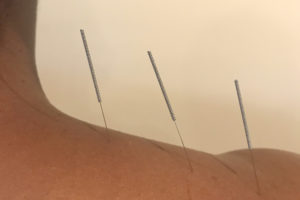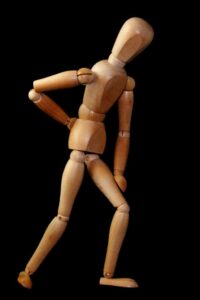by urban-acupuncture | Oct 7, 2019 | Acupuncture Columbus
About Hypertension (High Blood Pressure)
 High blood pressure, also known as hypertension, affects about 75 million adults in the United States today: that’s 1 out of every 3! Sometimes called “the silent killer” by the medical community because of its lack of symptoms, high blood pressure can significantly increase your risk for heart disease and/or stroke. Yet many Americans don’t realize they have high blood pressure, and it’s estimated that only about half of people with high blood pressure have it under control.
High blood pressure, also known as hypertension, affects about 75 million adults in the United States today: that’s 1 out of every 3! Sometimes called “the silent killer” by the medical community because of its lack of symptoms, high blood pressure can significantly increase your risk for heart disease and/or stroke. Yet many Americans don’t realize they have high blood pressure, and it’s estimated that only about half of people with high blood pressure have it under control.
Blood pressure is literally the force of your blood pushing against the walls of the blood vessels as it pumps through the body. Blood pressure is not a static measurement; it increases and decreases as we go about our normal activities. When blood pressure is high, the heart must work harder to pump blood around the body. And when our blood pressure is too high for too long, causing the heart to work constantly in overdrive, the result may be serious health conditions such as atherosclerosis (hardening of the arteries), heart disease, heart failure, and stroke.
The good news is that high blood pressure can be treated before it leads to serious health concerns! Usually, the prescribed treatment involves (1) lifestyle changes and (2) medication. For some adults, lifestyle choices such as quitting smoking, choosing a low sodium diet, and increasing exercise may be sufficient to bring their blood pressure under control. For others, especially those whose blood pressure may be related to genetics and family history, physicians often turn to one or more of the hundreds of blood pressure medications currently available.
Studies Show Acupuncture May be an Effective Treatment Option for Hypertension
For years dismissed by the medical community, an increasing body of scientific literature is showing that acupuncture may present an effective third option for hypertension. For individuals with mild or moderate hypertension, regular acupuncture treatments in combination with important lifestyle changes may be sufficient to bring high blood back within normal limits; for other adults, especially those with severe high blood pressure, acupuncture may be effective in combination with lifestyle changes and prescription drugs.
Acupuncture involves stimulating different acupuncture points around the body with specially-designed needles; by providing a “counter-irritant” at those specific points, the treatment effectively helps restore the body’s natural balance and, literally, heal itself. For instance, several recent studies indicated that acupuncture points SP9, LV3, LI4—among others—are particularly effective at targeting high blood pressure. Electroacupuncture, in which a small current is used to increase stimulation at each acupuncture point, may be especially effective in combating high blood pressure; one study indicated that over 70% of participants receiving electroacupuncture showed a noticeable drop in their blood pressure!
Some adults, especially those who have faced daunting medical tests with large hypodermic needles, can find the idea of acupuncture unsettling. In fact, most patients who have had acupuncture find it extremely relaxing! The needles are extremely small, thin, and flexible and require no more than a gentle tap to penetrate the acupressure point. Each treatment is adjusted to the comfort of the patient, and we encourage each patient to communicate with their acupuncturist throughout the treatment.
High blood pressure is a chronic condition, and whether you make lifestyle changes, take a daily medication, turn to acupuncture, or some combination thereof, it’s important to remember that any treatment must be done regularly in order to build up a cumulative and sustained effect on the body. If you have high blood pressure and you feel that you might benefit from acupuncture, we encourage you to consult with one of our licensed acupuncturists to discuss a customized treatment plan designed to improve your health and your well-being.
For more information about how acupuncture and other treatments can help you, please contact the Urban Acupuncture Center Board Certified Licensed Acupuncturist’s team at Indianola Ave, Clintonville (614) 725-2488 | Main St, Westerville (614) 426-4406 or click here. Taking new patients in and around greater Columbus, Ohio.
by urban-acupuncture | Oct 1, 2019 | Acupuncture Columbus
Can Acupuncture Help Relieve Side Effects of Cancer Treatment?
 Thanks to amazing advances in medical science, doctors today are able to diagnose and treat many types of cancers more effectively than ever before in history. Yet despite those advances, cancer treatment continues to be difficult for most patients; indeed, some patients complain that the treatment is worse than the disease. Unfortunately, the powerful drugs—taken together as chemotherapy—and radiation therapy required to kill the cancer also wreak havoc on the body’s healthy cells, causing significant and even debilitating side effects during and after treatment.
Thanks to amazing advances in medical science, doctors today are able to diagnose and treat many types of cancers more effectively than ever before in history. Yet despite those advances, cancer treatment continues to be difficult for most patients; indeed, some patients complain that the treatment is worse than the disease. Unfortunately, the powerful drugs—taken together as chemotherapy—and radiation therapy required to kill the cancer also wreak havoc on the body’s healthy cells, causing significant and even debilitating side effects during and after treatment.
Today, cancer patients and oncologists are increasingly turning to the ancient Chinese medical practice of acupuncture to help relieve some of the most common side effects of cancer treatment. While modern researchers continue to question exactly “why” and exactly “how” acupuncture works, a variety of scientific studies over the past decade clearly indicate that this ancient practice provides real and verifiable relief from nausea and vomiting, pain, and fatigue, for example, as well as a general improvement in depression, stress, and overall mood. For patients who have experienced the numerous benefits of this ancient practice, acupuncture has played a vital role in their fight against cancer.
Benefits of Acupuncture During Chemotherapy and Radiation Therapy
The goal of acupuncture is to help the body, through the gentle and careful stimulation of specific acupuncture points, restore a natural balance (homeostasis) that has been undermined by disease (such as cancer). In essence, acupuncture enhances the body’s natural ability to cope with the traumatic impact of chemotherapy and radiation therapy. While this may sound somewhat unscientific to some people, in fact, the benefits of acupuncture are both concrete and measurable.
- Nausea and vomiting: One of the most common and most unpleasant side effects of chemotherapy is nausea and frequent vomiting. Studies by the National Cancer Institute have shown that acupuncture can significantly reduce chemotherapy-induced nausea. Generally speaking, receiving an acupuncture treatment the day before chemo is the most effective way to offset the nausea and vomiting associated with chemo.
- Pain management: Unfortunately, pain is another common and often debilitating aspect of cancer and its treatment; pain can stem from the cancer itself, from surgeries required to treat the disease, or from nerves damaged by chemotherapy and radiation (neuropathy). While acupuncture may not totally replace the need for pain medication, it may significantly reduce the amount of medications required. Moreover, by improving circulation, acupuncture may help regenerate damaged nerves and heal scar tissue.
- Fatigue: Several recent studies have shown that acupuncture can provide significant improvement for patients suffering from fatigue related to cancer and/or cancer treatment. Acupuncture has also been shown to improve quality of sleep generally, which can also contribute to combatting cancer-related fatigue.
- Depression, anxiety, and stress: In general, restoring the body’s natural balance through acupuncture can help reduce feelings of depression and anxiety and improve the ability to cope with stress. This is especially true for patients who are undergoing treatment for cancer: many patients who utilize acupuncture during treatment report feeling less worried and less anxious, and generally calmer and more emotionally stable.
Acupuncture cannot cure cancer. But it can help make the cancer journey more bearable by helping to relieve some of the worst side effects of cancer treatment. Our goal is to work in conjunction with your oncology team to determine the safest and most effective method of incorporating acupuncture into your cancer treatment.
For more information about how acupuncture and other treatments can help you, please contact the Urban Acupuncture Center Board Certified Licensed Acupuncturist’s team at Indianola Ave, Clintonville (614) 725-2488 | Main St, Westerville (614) 426-4406 or click here. Taking new patients in and around greater Columbus, Ohio.
by urban-acupuncture | Sep 16, 2019 | Acupuncture Columbus
Morning Sickness
 Morning sickness affects 50% to 90% of all pregnant women, leading to complaints of nausea and vomiting in early pregnancy. 1 Hyperemesis gravidarum (HG) is the extreme form of morning sickness, occurring between the fourth and sixth week of pregnancy, causing intractable vomiting; dehydration; electrolyte disturbance; a 5% weight loss with ketosis; disturbed nutrition; acid aspiration; retinal, kidney, or hepatic damage; or neurological alterations in some individuals.1,2 Both conditions can significantly impact the quality of life of those who experience it.3
Morning sickness affects 50% to 90% of all pregnant women, leading to complaints of nausea and vomiting in early pregnancy. 1 Hyperemesis gravidarum (HG) is the extreme form of morning sickness, occurring between the fourth and sixth week of pregnancy, causing intractable vomiting; dehydration; electrolyte disturbance; a 5% weight loss with ketosis; disturbed nutrition; acid aspiration; retinal, kidney, or hepatic damage; or neurological alterations in some individuals.1,2 Both conditions can significantly impact the quality of life of those who experience it.3
Regarding prescription medications used in the treatment of morning sickness, an FDA-assigned pregnancy category A indicates that adequate and well-controlled studies have not demonstrated a risk to the fetus in the first trimester of pregnancy and that there is no evidence of risk in later trimesters.1 Currently, there are no prescription medications for the treatment of morning sickness that are classified with a pregnancy category A. Due to the fact that many pharmacological agents usually prescribed for this condition may also induce symptoms of morning sickness and that research is not conducted on pregnant women due to the uncertainty of the teratogenic effects of medications, acupuncture is a viable alternative for treating pregnant patients seeking relief.
Research and acupuncture for morning sickness
Several studies have been done on acupuncture and morning sickness. A meta analysis on electro-acupuncture and acupuncture in pregnancy has shown that electro-acupuncture and acupressure reduced nausea and vomiting. And a 2011 literature review by Freels shows that acupressure on P6 reduces the nausea symptoms.
Nausea and Chinese medicine
It is interesting that most of the research has been done using one specific acupuncture point P6. Situated on the inside of the arm, this point is well known for its anti-nausea properties. It is also very easy to find. That’s one of the reasons why it is used with travel sickness bands. However, there are many more points combinations that can be used in Chinese Medicine to help and support pregnant women.
As it is usually the case, there is no direct relationship between the Western diagnosis of ‘morning sickness’ and one single Chinese Medicine diagnosis. A full history will allow the acupuncturist to make his diagnosis and establish the points prescription specific to that particular woman. The practitioner will also be able to give some dietary advice depending on the diagnosis.
Other Benefits of Acupuncture During Pregnancy
Many people credit acupuncture for easing a wide range of pregnancy symptoms including heartburn, swelling in the legs, constipation, carpal tunnel syndrome, sciatica and more.
Here are some of the pregnancy symptoms acupuncture can relieve that science has studied:
Lower back and pelvic pain
Research published in the American Journal of Obstetrics & Gynecology reports acupuncture could reduce pain in the lower back along with pelvic pain. And a 2015 Cochrane Review for treating low back/pelvic pain in pregnancy found that acupuncture improved pelvic pain more than usual prenatal care.
Depression
Depression during pregnancy is common, affecting nearly one in four women — but a targeted type of acupuncture may help. For a 2010 study published in the journal Obstetrics & Gynecology, during eight weeks clinically-depressed pregnant women who weren’t previously taking antidepressants received general acupuncture, acupuncture specific for depression, or massage. The severity of depression symptoms decreased most among women who received acupuncture for depression. And 63 percent of the women who received the depression-specific acupuncture responded to the treatment, compared to 44 percent in the general acupuncture and massage groups.
Headaches
Research has shown that acupuncture can reduce pregnancy-induced headaches; women who received it also used less medication.
Sleep Problems
Getting to sleep and staying asleep is trickier than ever during pregnancy — but some research has shown that women who receive acupuncture sleep better during pregnancy, too.
For more information about how acupuncture and other treatments can help you, please contact the Urban Acupuncture Center Board Certified Licensed Acupuncturist’s team at Indianola Ave, Clintonville (614) 725-2488 | Main St, Westerville (614) 426-4406 or click here. Taking new patients in and around greater Columbus, Ohio.
by urban-acupuncture | Sep 5, 2019 | Acupuncture Columbus
 Hormonal imbalances occur in both sexes, can occur at any age, and are always accompanied by unpleasant problems such as lack of energy, reduced libido, infertility, irregular menstrual cycles, mood swings, or even growth impairment in children. Acupuncture is an ancient technique of Chinese medicine that more and more people are turning to for relief from various illnesses and maladies. While its applications are many, acupuncture has proven especially effective in the safe and natural treatment of all types of hormonal imbalances.
Hormonal imbalances occur in both sexes, can occur at any age, and are always accompanied by unpleasant problems such as lack of energy, reduced libido, infertility, irregular menstrual cycles, mood swings, or even growth impairment in children. Acupuncture is an ancient technique of Chinese medicine that more and more people are turning to for relief from various illnesses and maladies. While its applications are many, acupuncture has proven especially effective in the safe and natural treatment of all types of hormonal imbalances.
Hormones
Hormones play a large role in a vast array of functions in your body, including metabolism, reproduction and sleep-wake cycles. According to western medical science, hormones are secreted by glands in your brain and body, such as the pituitary and adrenal glands. They travel via blood to various cells to perform their tasks. Although much emphasis is placed on sex hormones like estrogen and testosterone, thyroid and adrenal hormones are just as crucial to optimal health.
Chinese Theory
Acupuncture.com states that Chinese medicine considers hormones to be a part of an individual’s jing, or essence. You are born with a certain amount of life force, or essence, which is stored in your kidneys, and used throughout your lifetime to nourish cells, tissues and organs. Jing is the root of yin, which encompasses blood and fluids, and yang, which includes energy and warmth. According to the website, when essence depletes, you can experience symptoms similar to those of hormonal imbalances, such as menopause or impotence. Chinese medicine treatments focus on points that can restore essence; organs like the kidneys and the liver are also involved in hormone balance.
Acupuncture Regulates Hormones, Boosts Fertility
Acupuncture is effective for the treatment of polycystic ovarian syndrome. Researchers find acupuncture effective for normalizing hormone levels and improving the overall health of patients with polycystic ovarian syndrome. Scientific data demonstrates that acupuncture produces significant improvements in menstrual regularity, restores ovulation pattern regularity, increases pregnancy rates, regulates hormonal secretions, normalizes basal body temperature patterns, and increases embryo survival rates. Fertility enhancements provided by acupuncture apply to both natural conception and IVF (in vitro fertilization) patients.
Research published in the Shanghai Journal of Acupuncture and Moxibustion entitled Advances In Clinical Research On Acupuncture Moxibustion Treatment For Polycystic Ovarian Syndrome cites several clinical studies. Let’s take a look at the finings. Chen et al. applied stimulation with acupuncture at sacral plexus acupoints and paraspinal acupoints. Acupuncture treatment sessions were regularly administered over the course of three menstruation cycles. Upon completion of all acupuncture therapy, follow-up examinations (including ultrasound imaging) demonstrated significant improvements in menstrual regularity, ovulation frequency, and cervical mucus consistency. In addition, the pregnancy rate of patients in the study increased significantly.
Finding the Right Acupuncturist
If you are struggling with hormonal issues, whether you are a young woman suffering with PMS, a mature woman dealing with menopause, or a man struggling with hypothyroidism, acupuncture can help restore your endocrine system to proper, balanced functioning. However, as with any treatment for a disease or disorder of the body, make sure to talk to your doctor first.
For more information about how acupuncture and other treatments can help you, please contact the Urban Acupuncture Center Board Certified Licensed Acupuncturist’s team at Indianola Ave, Clintonville (614) 725-2488 | Main St, Westerville (614) 426-4406 or click here. Taking new patients in and around greater Columbus, Ohio.
by urban-acupuncture | Aug 5, 2019 | Acupuncture Columbus
Sciatica Nerve Pain Treatment with Acupuncture

photo by www.woodenearth.com
Acupuncture helps to stimulate the central nervous system. This, in turn, triggers the release of chemicals that either alter the experience of pain or produce other changes that promote a sense of well-being.
What Is Sciatica Nerve Pain?
Back pain comes in all shapes and sizes. It can flare up immediately after an injury or appear slowly and mysteriously over a period of months. It might be sudden and short-lived (acute) or long-lasting (chronic).
Sciatica nerve pain refers to back pain caused by a problem with the sciatic nerve. This is a large nerve that runs from the lower back down the back of each leg. When something injures or puts pressure on the sciatic nerve, it can cause pain in the lower back that spreads to the hip, buttocks, and leg. Up to 90% of people recover from sciatica without surgery.
What Triggers Sciatica Pain?
Sciatica is caused by irritation of the root(s) of the lower lumbar and lumbosacral spine. Additional common causes of sciatica include: Lumbar spinal stenosis (narrowing of the spinal canal in the lower back) Degenerative disc disease (breakdown of discs, which act as cushions between the vertebrae)
Is Sciatica Nerve Pain Symptoms
- Pain in the buttocks or leg that worsens with sitting
- Burning, tingling, or searing pain down the leg
- Weakness, numbness or difficulty moving the leg or foot
- Constant pain on one side of the buttocks
- Shooting, sharp pain making it difficult to stand
Can Acupuncture Help Treat Sciatica Pain?
Acupuncture and herbs relieve sciatica, a condition characterized by lower back pain radiating thro�ugh the hips, buttocks, and legs.
By inserting small needles into specific sites on the body, the needles trigger a response from the nervous system. This response from the nervous system leads our brain to:
- release a cascade of natural painkillers (endorphins and enkephalins),
- increase blood flow to the painful area,
- relax the muscles in the surrounding area.
For more information about how acupuncture and other treatments can help you, please contact the Urban Acupuncture Center Board Certified Licensed Acupuncturist’s team at Indianola Ave, Clintonville (614) 725-2488 | Main St, Westerville (614) 426-4406 or click here. Taking new patients in and around greater Columbus, Ohio.
Image by https://www.woodenearth.com/
by urban-acupuncture | Aug 1, 2019 | Acupuncture Columbus
Acupuncture Can Help Get You Pregnant
 Some people choose to seek traditional and complementary treatments, such as acupuncture, to help treat fertility issues.
Some people choose to seek traditional and complementary treatments, such as acupuncture, to help treat fertility issues.
Medical professionals define infertility as being unable to conceive after having unprotected sex for 1 year. Women who are unable to remain pregnant may also have infertility. According to the Centers for Disease Control and Prevention (CDC), infertility affects about 12 percent of women ages 15–44.
In 35 percent of couples with fertility issues, both a male and female factor may play a role. Doctors identify male factors alone in around 8 percent of infertility cases in couples actively trying to conceive.
Acupuncture is a traditional Chinese medicine that some people use to manage a variety of conditions. An acupuncturist inserts very small, thin needles into specific points of a body to stimulate blood flow to that area.
When used as a treatment for infertility, proponents of acupuncture say it can help by:
- boosting blood flow to reproductive organs
- balancing hormones
- relieving stress
Acupuncture can Help Increase Fertility and the Chance of Conception
Acupuncture can increase fertility by reducing stress, increasing blood flow to the reproductive organs and balancing the endocrine system, according to several studies and medical research.
Modern acupuncture consists of the gentle insertion and stimulation of thin, disposable sterile needles at strategic points near the surface of the body. Over 2,000 acupuncture points on the human body connect with 14 major pathways, called meridians. Chinese medicine practitioners believe that these meridians conduct qi, or energy, between the surface of the body and internal organs. It is qi that regulates spiritual, emotional, mental and physical balance. When the flow of qi is disrupted through poor health habits or other circumstances, pain and/or disease can result. Acupuncture helps to keep the normal flow of this energy unblocked, thereby increasing a couple’s chances of conceiving.
Acupuncture infertility treatment can improve almost every cause of this obstacle. While 40 percent of infertility is caused by problems in the female, another 40 percent is caused by problems in the male, such as low sperm count or motility. The cause of female infertility stems from problems such as anovulation and endometriosis. The remaining 20 percent is caused by unknown factors.
One of the ways acupuncture infertility treatment increases fertility is by reducing stress, which is often a key factor in the fertility of both men and women. When people are under stress, the hormone cortisol is released in the brain. This alters the brain’s neurochemical balance, thus changing hormone levels and disrupting the pituitary balance that is key to the reproductive cycle.
If the thyroid is over- or under-functioning, acupuncture can help address the effects on fertility. Acupuncture can also “. . . be used to treat any type of fertility disorder including spasmed tubes. Spasmed tubes are often de-spasmed with acupuncture, though blocked tubes will not respond to acupuncture,” according to the American Pregnancy Association.
For more information about how acupuncture and other treatments can help you, please contact the Urban Acupuncture Center Board Certified Licensed Acupuncturist’s team at Indianola Ave, Clintonville (614) 725-2488 | Main St, Westerville (614) 426-4406 or click here. Taking new patients in and around greater Columbus, Ohio.
 High blood pressure, also known as hypertension, affects about 75 million adults in the United States today: that’s 1 out of every 3! Sometimes called “the silent killer” by the medical community because of its lack of symptoms, high blood pressure can significantly increase your risk for heart disease and/or stroke. Yet many Americans don’t realize they have high blood pressure, and it’s estimated that only about half of people with high blood pressure have it under control.
High blood pressure, also known as hypertension, affects about 75 million adults in the United States today: that’s 1 out of every 3! Sometimes called “the silent killer” by the medical community because of its lack of symptoms, high blood pressure can significantly increase your risk for heart disease and/or stroke. Yet many Americans don’t realize they have high blood pressure, and it’s estimated that only about half of people with high blood pressure have it under control.
 Thanks to amazing advances in medical science, doctors today are able to diagnose and treat many types of cancers more effectively than ever before in history. Yet despite those advances, cancer treatment continues to be difficult for most patients; indeed, some patients complain that the treatment is worse than the disease. Unfortunately, the powerful drugs—taken together as chemotherapy—and radiation therapy required to kill the cancer also wreak havoc on the body’s healthy cells, causing significant and even debilitating side effects during and after treatment.
Thanks to amazing advances in medical science, doctors today are able to diagnose and treat many types of cancers more effectively than ever before in history. Yet despite those advances, cancer treatment continues to be difficult for most patients; indeed, some patients complain that the treatment is worse than the disease. Unfortunately, the powerful drugs—taken together as chemotherapy—and radiation therapy required to kill the cancer also wreak havoc on the body’s healthy cells, causing significant and even debilitating side effects during and after treatment. Morning sickness affects 50% to 90% of all pregnant women, leading to complaints of nausea and vomiting in early pregnancy. 1 Hyperemesis gravidarum (HG) is the extreme form of morning sickness, occurring between the fourth and sixth week of pregnancy, causing intractable vomiting; dehydration; electrolyte disturbance; a 5% weight loss with ketosis; disturbed nutrition; acid aspiration; retinal, kidney, or hepatic damage; or neurological alterations in some individuals.1,2 Both conditions can significantly impact the quality of life of those who experience it.3
Morning sickness affects 50% to 90% of all pregnant women, leading to complaints of nausea and vomiting in early pregnancy. 1 Hyperemesis gravidarum (HG) is the extreme form of morning sickness, occurring between the fourth and sixth week of pregnancy, causing intractable vomiting; dehydration; electrolyte disturbance; a 5% weight loss with ketosis; disturbed nutrition; acid aspiration; retinal, kidney, or hepatic damage; or neurological alterations in some individuals.1,2 Both conditions can significantly impact the quality of life of those who experience it.3 Hormonal imbalances occur in both sexes, can occur at any age, and are always accompanied by unpleasant problems such as lack of energy, reduced libido, infertility, irregular menstrual cycles, mood swings, or even growth impairment in children. Acupuncture is an ancient technique of Chinese medicine that more and more people are turning to for relief from various illnesses and maladies. While its applications are many, acupuncture has proven especially effective in the safe and natural treatment of all types of hormonal imbalances.
Hormonal imbalances occur in both sexes, can occur at any age, and are always accompanied by unpleasant problems such as lack of energy, reduced libido, infertility, irregular menstrual cycles, mood swings, or even growth impairment in children. Acupuncture is an ancient technique of Chinese medicine that more and more people are turning to for relief from various illnesses and maladies. While its applications are many, acupuncture has proven especially effective in the safe and natural treatment of all types of hormonal imbalances.
 Some people choose to seek traditional and complementary treatments, such as acupuncture, to help treat fertility issues.
Some people choose to seek traditional and complementary treatments, such as acupuncture, to help treat fertility issues.